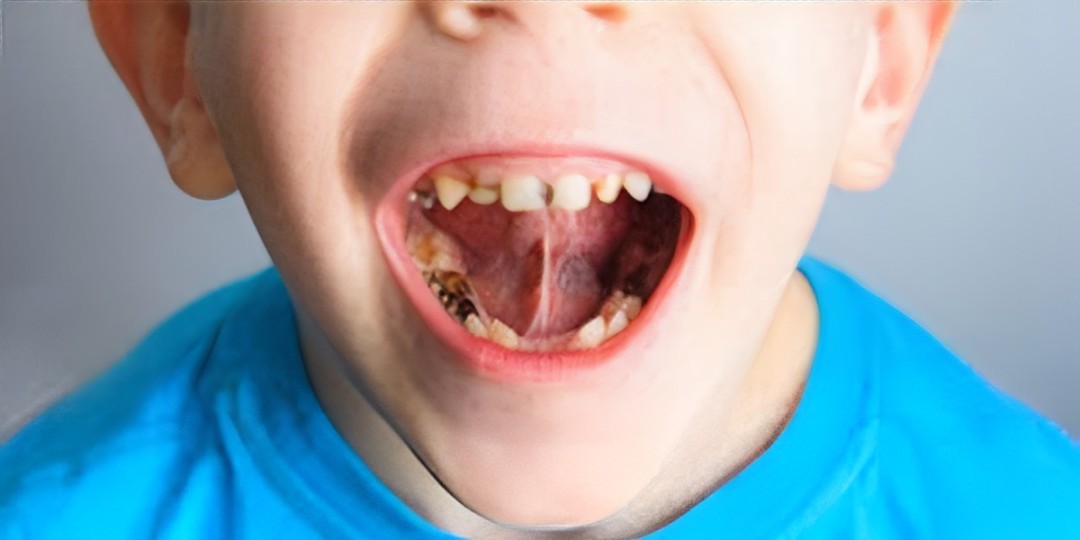Published on August 18, 2024

Black stains on baby teeth can be more than just an aesthetic issue—they can signal underlying problems that need attention.
If you’ve noticed dark spots on your little one’s teeth, don’t panic. These stains often stem from common causes like diet, oral hygiene habits, or even medications. Addressing them early on is crucial to prevent more serious dental issues and ensure your child’s smile stays bright and healthy.
In this blog, we’ll explore why these stains occur and, more importantly, how you can prevent and remove them effectively. From daily brushing techniques to dietary adjustments and professional treatments, we’ll cover practical steps you can take to keep your child’s teeth spotless.
By understanding and tackling the root causes of these stains, you’ll be well on your way to maintaining a healthier, happier smile for your little one.
Let’s read on and know how you can manage and eliminate those pesky black stains for good!
Common Causes of Black Stains on Baby Teeth
Poor Oral Hygiene
Black stains often develop when brushing is inconsistent or ineffective. When plaque builds up and is not removed properly, it can lead to discoloration. Ensure that you’re brushing your child’s teeth at least twice a day with fluoride toothpaste. Proper brushing removes plaque and prevents stains from forming.
Dietary Factors
Sugary foods and drinks can contribute to black stains. Bacteria in the mouth feed on sugar, producing acids that can erode enamel and lead to discoloration. Limit sugary snacks and drinks to reduce the risk of staining.
Medications
Certain medications, such as those containing iron or antibiotics like tetracycline, can cause black or dark stains on baby teeth. If your child is on medication, discuss any potential side effects with your pediatrician and consider alternatives if necessary.
Genetics
Genetic factors can also play a role in dental discoloration. If you or your partner have a history of tooth staining, it might affect your child’s teeth. While you can’t change genetics, you can focus on effective prevention and care strategies.
Effective Prevention Strategies
Proper Brushing Techniques
Teach your child to brush their teeth using a soft-bristled toothbrush. Ensure they brush for at least two minutes, covering all surfaces of the teeth. Supervise their brushing until they develop the skill to do it effectively on their own.
Healthy Eating Habits
Encourage a diet rich in fruits, vegetables, and water. These foods help clean the teeth and reduce the risk of stains. Avoid frequent consumption of sugary snacks and drinks, as they can contribute to plaque buildup and staining.
Regular Dental Check-ups
Schedule routine dental visits for your child. Regular check-ups allow the dentist to monitor oral health, catch potential issues early, and provide professional cleaning to remove plaque and tartar that may cause stains.
Use of Fluoride Toothpaste
Fluoride strengthens tooth enamel and helps prevent decay and stains. Use a fluoride toothpaste suitable for children, and make sure your child brushes twice daily to benefit from fluoride’s protective effects.
How to Remove Black Stains from Baby Teeth?
Professional Cleaning
A professional dental cleaning can effectively remove black stains that regular brushing might miss. Dentists use special tools and techniques to clean and polish teeth, eliminating built-up plaque and discoloration.
Home Remedies
Simple home remedies can also help. Rinsing with a mixture of baking soda and water can gently scrub away surface stains. Ensure that any home remedy used is safe for children, and consult with your dentist before trying new treatments.
Over-the-Counter Products
There are stain-removing products designed specifically for children. These products can help remove surface stains and improve the appearance of teeth. Look for those that are gentle and approved for use in children’s dental care.
When to Consult a Pediatric Dentist?
Signs that Require Professional Help
If black stains persist despite good oral hygiene, or if they’re accompanied by other symptoms like swelling or pain, it’s time to consult a pediatric dentist. Persistent stains might indicate underlying dental issues that need professional attention.
Choosing the Right Pediatric Dentist
Select a pediatric dentist with experience in treating young children. Look for someone who creates a comfortable environment and communicates effectively with both you and your child. Ask for recommendations and read reviews to find the best fit for your family.
Maintaining Good Oral Health for Kids
Daily Oral Care Routine
Establish a daily oral care routine that includes brushing, flossing, and rinsing. Make it a fun and engaging activity for your child, using colorful toothbrushes or fun songs to make brushing enjoyable.
Encouraging Healthy Habits
Teach your child the importance of good oral hygiene from an early age. Encourage them to take an active role in their dental care by letting them choose their toothbrush and toothpaste. Positive reinforcement can help them develop lifelong healthy habits.
Maintaining your child’s oral health is crucial for preventing and managing black stains on their baby teeth. By practicing proper brushing, encouraging healthy eating habits, and scheduling regular dental check-ups, you can help keep their smile bright and stain-free. If black stains persist or other dental concerns arise, don’t hesitate to consult a pediatric dentist for expert advice. With the right approach and care, you can ensure your child’s teeth stay healthy and beautiful.
